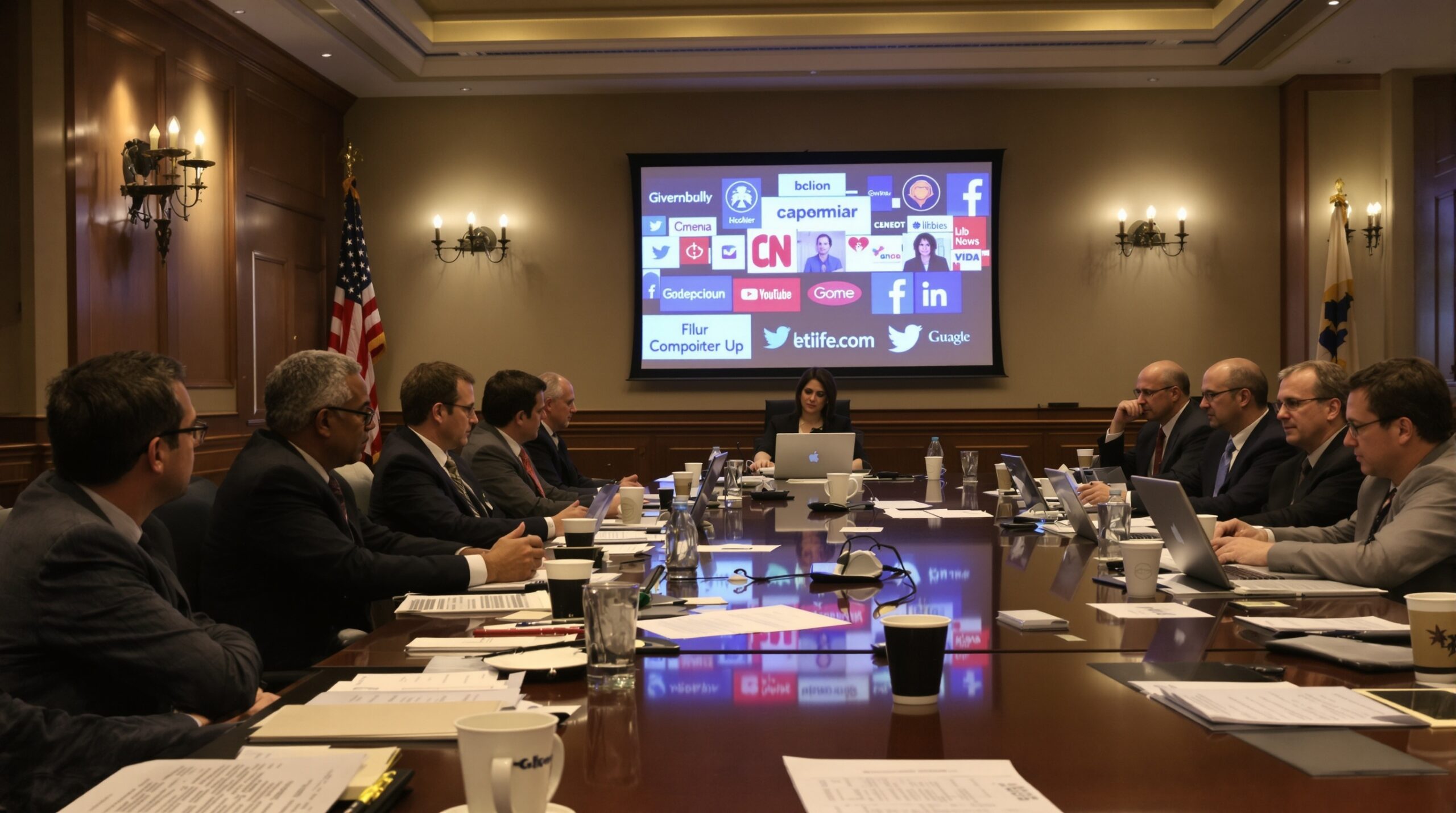As digital platforms shape public discourse, state governments and tech giants are fighting over who controls online content moderation. The legal and constitutional stakes are high, with both sides claiming to protect fundamental rights and democracy.
Background: Growing Influence of Social Media
Billions of people rely on social media for news, communication, and community. Platforms like Facebook, Twitter, and YouTube decide what users see by setting content policies. These policies have sparked controversy, with some groups accusing platforms of stifling speech or allowing harmful misinformation to spread.
Social media companies claim their moderation tools are vital to community safety and healthy dialogue. Critics argue that major platforms hold too much unchecked power over free expression. This tension has prompted legislative action by state governments seeking to address perceived imbalances.
State Laws Aimed at Tech Regulation
A handful of U.S. states, led primarily by Texas and Florida, have passed or proposed laws targeting social media content rules. These laws generally prohibit large platforms from removing content or suspending users based on political viewpoints. Lawmakers argue these measures address censorship and protect users’ rights to express opinions.
For example, Florida’s SB 7072 and Texas’s HB 20 aim to restrict tech companies from banning political candidates or users for certain types of speech. These laws reflect a broader national debate on the limits of private companies’ control over public conversation.
Legal Battles Escalate
Tech companies, including Meta (formerly Facebook), Google, and X (formerly Twitter), have challenged these state laws in court. Their lawsuits argue that content moderation decisions are protected by the First Amendment, just like an editorial in a newspaper. Courts have temporarily blocked some of these laws from going into effect while litigation proceeds.
For example, federal district courts in Texas and Florida issued injunctions stopping the enforcement of the laws. Both cases quickly advanced to federal appeals courts, which issued conflicting rulings. The legal uncertainty escalated as both states and the tech industry sought clarity.
The Supreme Court Steps In
Given the nationwide relevance, the United States Supreme Court agreed to review whether states can compel companies to host speech they would otherwise remove. Arguments before the Court highlighted the tension between government regulation and private editorial freedom.
Justices questioned whether social media platforms are more like newspapers, which have editorial discretion, or common carriers, which must serve all users equally. The outcome may set a major precedent for the limits of state power over digital speech and the rights of private companies online.
Key Arguments from Both Sides
State Governments: Protecting Free Expression
States defending these laws argue that social media platforms function as modern public squares. They contend companies have too much gatekeeping power, endangering diverse debate. Legislators maintain that limiting tech companies’ ability to censor political or ideological viewpoints protects users’ rights.
Supporters cite examples of alleged partisan enforcement and note that platforms often dominate the market, leaving users with few alternatives. They argue that state laws rebalance speech rights without imposing burdensome regulation on every online service.
Tech Companies: Editorial Rights and User Safety
Tech companies counter that forcing them to host all content, regardless of viewpoint, violates their First Amendment rights. They liken content moderation to an editorial decision, not a neutral carrier’s duty. Executives warn that restricting moderation will force platforms to host hate speech, spam, or dangerous misinformation.
They further argue that inconsistent state rules could fragment the Internet, creating confusion and higher compliance costs. Federal law, such as Section 230 of the Communications Decency Act, already gives platforms broad leeway to manage their services.
Implications for Users and Democracy
The outcome of this legal battle will shape how Americans use social media. If states prevail, platforms may have to allow a wider range of speech, including controversial or harmful posts. This shift could make it harder to combat disinformation, harassment, and incitement on digital platforms.
If tech companies win, they can continue curating their services as they see fit, but could face accusations of censorship or bias. Either result could impact election-related content, public safety, and the power of private corporations in a democratic society.
The National and Global Context
The U.S. debate reflects a global trend. Countries like the European Union and India have also considered or enacted new rules for platform content moderation. Some regimes seek to increase government oversight; others try to secure user rights or impose transparency.
Technology companies adapt their policies to different legal landscapes, balancing free speech, local laws, and their own safety standards. The result can be confusing for users, who may encounter varying rules depending on their location and the platforms they use.
What Comes Next
A Supreme Court decision is expected soon, with significant consequences for the relationship between governments and social media platforms. Policymakers, legal experts, and the public will scrutinize the decision’s reasoning and scope. The issue is unlikely to disappear, even with a clear ruling.
Future debates will likely focus on finding ways to encourage free expression while also addressing harassment, extremism, and disinformation online. As new platforms and technologies emerge, the question of who should decide what stays online will remain critical for democracy.
Conclusion
States challenging tech giants over content moderation set the stage for a vital legal and cultural reckoning. The courts must balance core constitutional rights, evolving technology, and the diverse realities of digital speech. Their decision will affect users, companies, and the fabric of democratic debate for years to come.

